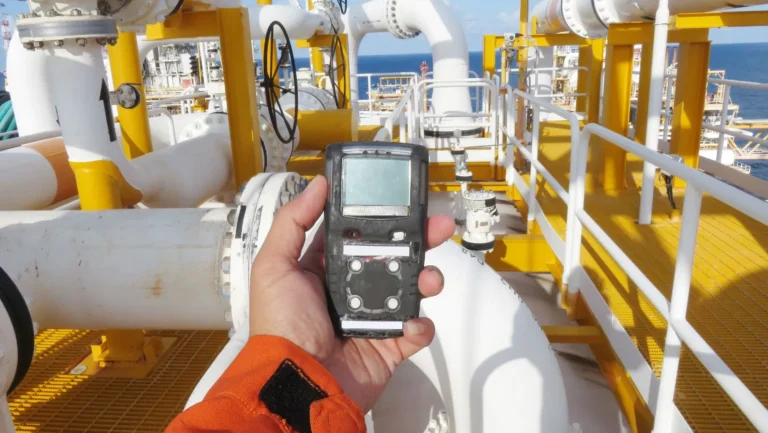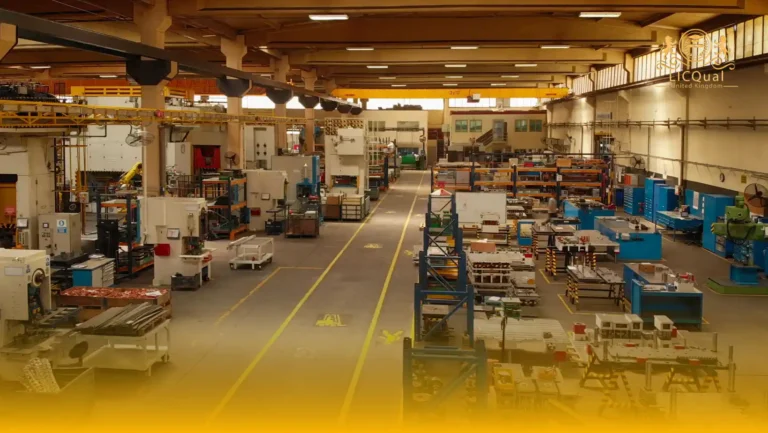The LICQual Level 1 Certificate in Signalman is a foundational qualification designed to equip new entrants and support personnel with essential knowledge and practical skills in safe signaling operations. As a crucial component of lifting and hoisting tasks in industries such as construction, warehousing, logistics, maritime, and oil and gas, the role of a signalman ensures the safe and efficient movement of loads and heavy equipment. This internationally recognized certification provides the perfect starting point for individuals seeking a career in lifting and rigging operations.
This entry-level course introduces learners to the basic principles of hand and radio signaling used to guide crane and lifting equipment operators. It covers the fundamental responsibilities of a signalman, ensuring clear and accurate communication between ground personnel and equipment operators. By learning industry-approved signaling protocols and safety standards, participants become key players in maintaining safe lifting environments and preventing on-site accidents.
The curriculum includes vital topics such as recognizing standard signal codes, understanding equipment limitations, load safety checks, personal protective equipment (PPE) use, and environmental awareness. Learners will also be introduced to the basics of hazard identification and risk assessment to help support safe lifting operations under supervision. The course combines theoretical instruction with practical demonstrations, ensuring participants are confident in both knowledge and application.
One of the standout features of the LICQual Level 1 Certificate in Signalman is its focus on real-world relevance. The training is designed around current industry practices and safety regulations, giving learners the practical skills they need to integrate smoothly into active work environments. With a strong emphasis on teamwork, situational awareness, and communication, this course lays the groundwork for future advancement into more technical or supervisory roles in lifting operations.
Upon successful completion of the course, learners are awarded the LICQual Level 1 Certificate in Signalman, an internationally respected qualification that enhances employability and serves as a stepping stone for further professional development. Whether you’re a newcomer to the industry or transitioning into a safety-support role, this certificate validates your readiness to contribute to safe and compliant lifting operations from day one.
With the growing global demand for safety-qualified professionals in construction and logistics sectors, the LICQual Level 1 Certificate in Signalman opens the door to numerous job opportunities both locally and internationally. Start your journey with the right training, build a strong safety foundation, and take your first step toward a successful career in lifting operations and site safety management.
Course Overview
Qualification Title
LICQual Level 1 Certificate in Signalman
Total Units
6
Total Credits
12
GLH
36
Qualification #
LICQ2200230
Qualification Specification
To enroll in the LICQual Level 1 Certificate in Signalman, applicants must meet the following criteria:
|
Qualification# |
Unit Title |
Credits |
GLH |
|---|---|---|---|
|
LICQ2200230-1 |
Introduction to Signalman Roles and Responsibilities |
2 |
6 |
|
LICQ2200230-2 |
Basic Communication Techniques for Signalmen |
2 |
6 |
|
LICQ2200230-3 |
Health and Safety Regulations for Signalmen |
2 |
6 |
|
LICQ2200230-4 |
Use of Signals in Simple Operations |
2 |
6 |
|
LICQ2200230-5 |
Basic Traffic Control and Management |
2 |
6 |
|
LICQ2200230-6 |
Understanding and Using Signaling Equipment |
2 |
6 |
By the end of this course, learners will be able to:
Introduction to Signalman Roles and Responsibilities
- Understand and describe the fundamental roles and responsibilities of a signalman in ensuring safe and efficient railway operations.
- Demonstrate the ability to manage basic signaling tasks, including overseeing train movements and coordinating with other railway staff.
- Recognize the importance of signalman duties in maintaining safety, communication, and operational efficiency on the railway network.
Basic Communication Techniques for Signalmen
- Apply effective communication techniques for relaying clear instructions to train drivers, station staff, and other personnel.
- Demonstrate the ability to use radio, phone, and other communication tools to maintain safe and efficient train operations.
- Understand the role of communication in emergency situations and how to relay information clearly under pressure.
Health and Safety Regulations for Signalmen
- Identify and apply essential health and safety regulations specific to signaling operations.
- Demonstrate an understanding of workplace safety measures, risk assessments, and emergency procedures to ensure a safe working environment.
- Understand the importance of personal protective equipment (PPE) and safe practices in railway signaling operations.
Use of Signals in Simple Operations
- Understand the basic types of signals used in railway operations and their function in directing train movements.
- Demonstrate the ability to interpret and manage signals in simple signaling operations.
- Apply knowledge of signal rules to ensure safe and timely train movement within controlled areas.
Basic Traffic Control and Management
- Apply basic traffic control techniques to manage train schedules and prevent delays.
- Demonstrate the ability to handle simple traffic management situations, ensuring safe and efficient movement of trains.
- Understand the principles of train flow control and how to prioritize train movements during peak or complex operations.
Understanding and Using Signaling Equipment
- Identify and explain the different types of signaling equipment used in railway operations.
- Demonstrate the ability to operate basic signaling equipment, such as signals, levers, and control panels.
- Understand the importance of maintaining signaling equipment and performing basic checks to ensure its functionality and safety.
This diploma is ideal for:
Assessment and Verification
All units within this qualification are subject to internal assessment by the approved centre and external verification by LICQual. The qualification follows a criterion-referenced assessment approach, ensuring that learners meet all specified learning outcomes.
To achieve a ‘Pass’ in any unit, learners must provide valid, sufficient, and authentic evidence demonstrating their attainment of all learning outcomes and compliance with the prescribed assessment criteria. The Assessor is responsible for evaluating the evidence and determining whether the learner has successfully met the required standards.
Assessors must maintain a clear and comprehensive audit trail, documenting the basis for their assessment decisions to ensure transparency, consistency, and compliance with quality assurance requirements.







